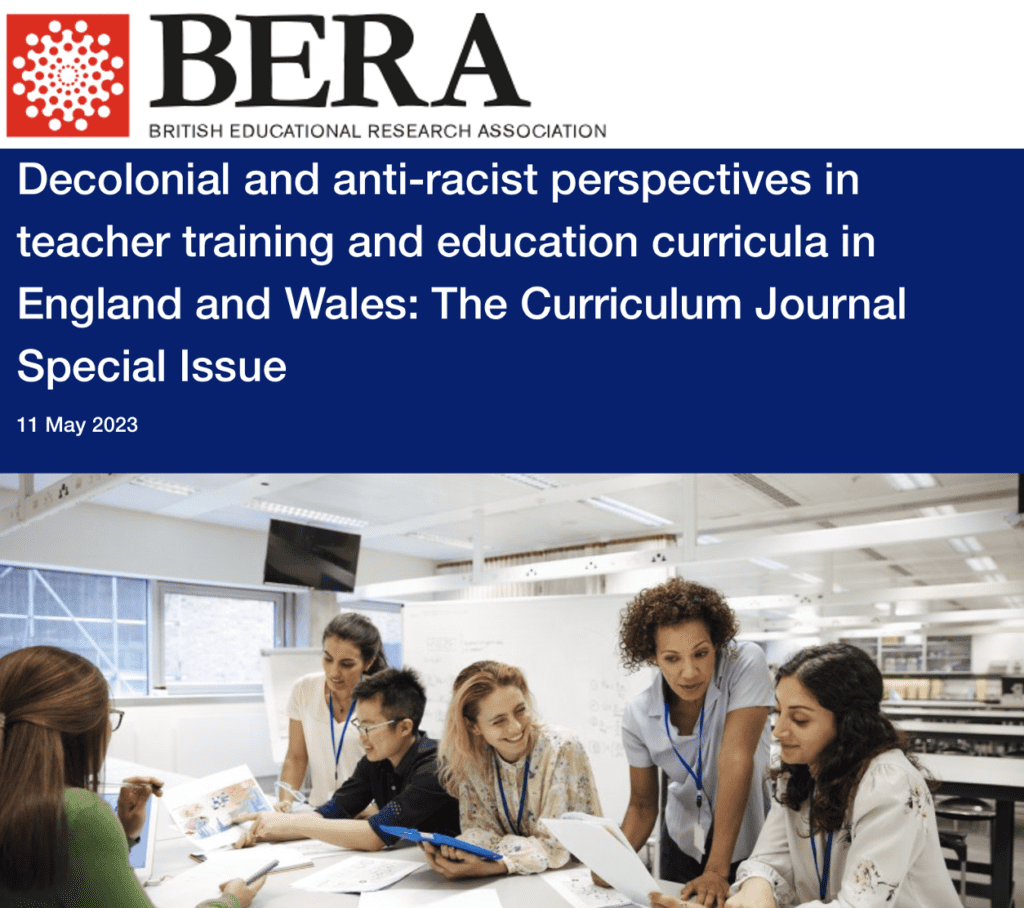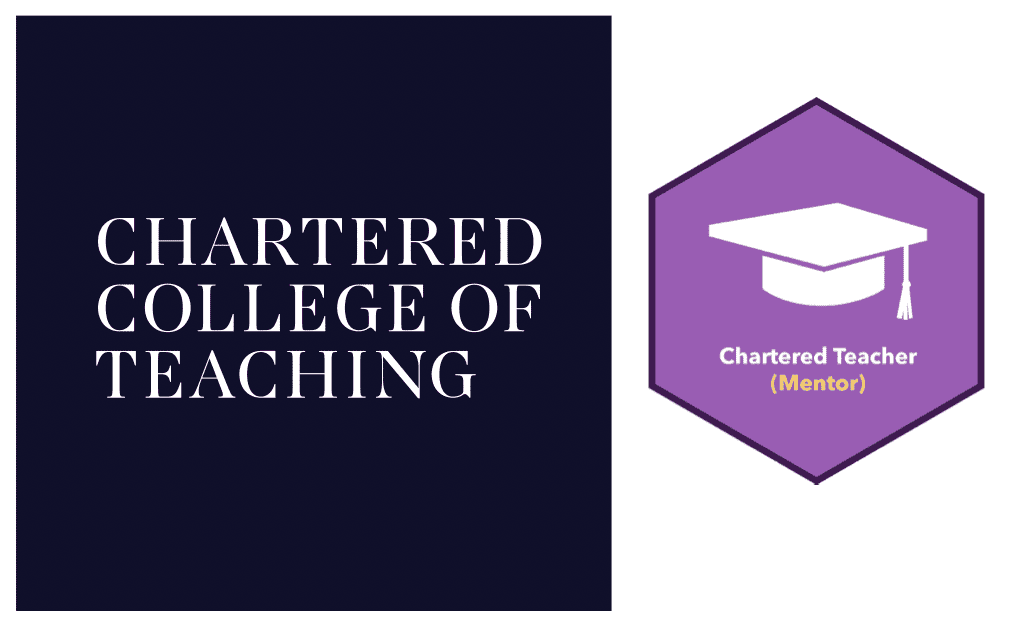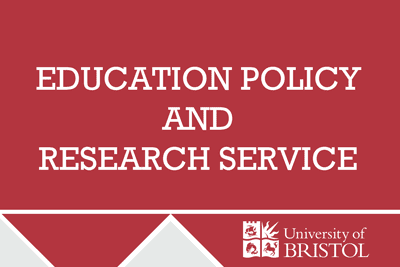
We look forward to welcoming Tracy Shand, author of Boardingology, to discuss her latest work, with a sneak preview of her new book and a Q&A on staff wellbeing. This is an informal event, offering an opportunity to discuss pedagogy and wider educational issues. All Key Stages and sectors welcome. * This event will be […]

In collaboration with WomenEd and International Women’s Day, join us for an opportunity to hear 6 women working in education discuss issues of equity they have experienced in their own careers and how they try to ensure equity for those they lead now. This is an informal event, offering an opportunity to discuss pedagogy and […]

In this webinar jointly hosted by the Chartered College and Steplab, Cat Scutt and Josh Goodrich will be taking a closer look at instructional coaching and how school leaders can harness it as a powerful tool for teacher – and school – development. They will consider some common challenges around implementation of instructional coaching and […]

Drawing on their work as teacher educators, schoolteachers, and school leaders, contributing authors, the Curriculum Journal’s editorial team and guest speaker Dr Marlon Moncrieffe will explore and reflect on current practices and on future directions for teacher training and education around decolonial and anti-racist perspectives in England, Wales and beyond. This seminar will also include […]

This webinar seeks to cast light on the potential impact the recommendations set out within the SEND Green Paper and the consequent policy implications may have for the SENCo role. We hope that by looking beneath the rhetoric and considering the role from both a practitioner and parental perspective schools will be more informed and […]

Join Geoff Barton, General Secretary of the Association of Schools and Colleges (ASCL) and a selection of Senior Leaders in Education on Tuesday 21 March 4-5.30pm, as we launch the findings of the Well School research project conducted by the University of Manchester Hear first-hand what is working in education to improve the health and […]

This article summarises the following original research paper: Onrust S, Otten R, Lammers J et al. (2016) School-based programmes to reduce and prevent substance use in different age groups: What works for whom? Systematic review and meta-regression analysis. Clinical Psychology Review 44: 45–59. Introduction Substance use at a young age is associated with an increased […]

We’re delighted to welcome Mary Myatt to this session focused on taking an evidence-informed approach to school improvement. Mary will consider school improvement through the lens of impact. She will argue that many school processes hinder rather than support outcomes for pupils. She will suggest that the 80:20 rule, a culture of improve, not prove […]

About this session An information session designed to tell you everything you need to know about our brand new Chartered Teacher Mentor Pathway, including: What is required to achieve Chartered Teacher (Mentor) Status How Chartered Status can support professional learning as part of a professional learning pathway, supporting the development of mentoring expertise How Chartered […]


Beng Huat See, Professor in the School of Education, Durham University, UK Ensuring an adequate supply of appropriate, suitably qualified teachers is a major policy concern facing many education systems around the world. It is generally agreed that the quality of teachers is an important element in the learning outcomes of their students (Darling-Hammond, 2000; Hanushek […]

Thomas Perry and Rebecca Morris, University of Warwick, UK Implementation: Easier said than done Underlying a lot of current thinking about evidence-based practice is the idea of teachers selecting and implementing the programmes and strategies that researchers deem to be effective. In this division of labour, researchers find out ‘what works’ and teachers are tasked […]

Gary Aubin, Director of SEND, Future Academies, UK Sarah Green, Director of Literacy, The Prospere Learning Trust, UK Fliss James, Early Years Teacher and Deputy Director of East London Research School, UK Julie Kettlewell, Assistant Headteacher and Assistant Director of Huntingdon Research School, UK Kirstin Mulholland, Assistant Professor in Education, Northumbria University, UK Bob Pritchard, […]

Dylan Wiliam, UCL Institute of Education, UK Introduction There is increasing consensus, among both researchers and policymakers, that teacher quality is both variable and consequential; some teachers are more effective than others, and the differences are both large and significant for the students they teach. Predictably, this has led to a variety of proposals for […]

Meg Maguire and Emma Towers, King’s College London, School of Education, Communication and Society, UK Different perspectives on ‘teacher effectiveness’ Good teaching matters, and decades of research has shown that teachers can make a difference in student learning (Stronge, 2018) and that teachers are one of the most important in-school factors in students’ academic success […]

Nick Pointer and Steve Farndon, Ambition Institute, UK Teacher educators face a common problem. During professional development sessions, teachers engage with new ideas or strategies, finding them stimulating and relevant. Yet these same teachers subsequently fail to change the way they act or make decisions in their classrooms; a phenomenon dubbed the ‘knowing–doing gap’ (Knight […]

Dr. Rina P.Y. Lai, University of Cambridge, United Kingdom Sarah Tong, Big Bang Academy, Hong Kong Introduction After the disruptive wave of the pandemic, educators are standing at the critical junction of the future of educational technology (EdTech). In particular, witnessing the ubiquity of digital technologies giving rise to new ways of teaching and learning, […]

Chris Larvin, Research Specialist, Teach First, UK Jenny Griffiths, Knowledge & Research Manager, Teach First, UK Luke Bocock, Head of Research & Learning, Teach First, UK Recent research suggests that the impact of high-quality teacher development on pupil outcomes can be equivalent to a pupil taught by a teacher with 10 years of experience compared […]

Alex Tomkins, Headteacher, Spring Common Academy, UK; EdD student, University of Derby, UK What makes a special school different? Special schools educate students with a variety of needs; most have diverse cohorts and often teach the most marginalised in our school system. The school in which this case study is set is a large special […]

Jo Lomax, Programme Lead, and Luke Watkins (CTeach), Learning Specialist, Church of England Foundation for Educational Leadership, UK Context Reforms to the induction of our newest teachers, through the Early Career Framework (DfE, 2019), and the reformed NPQs (DfE, 2020) for those who aspire to develop expertise in specialist areas and leadership are underpinned by […]




















